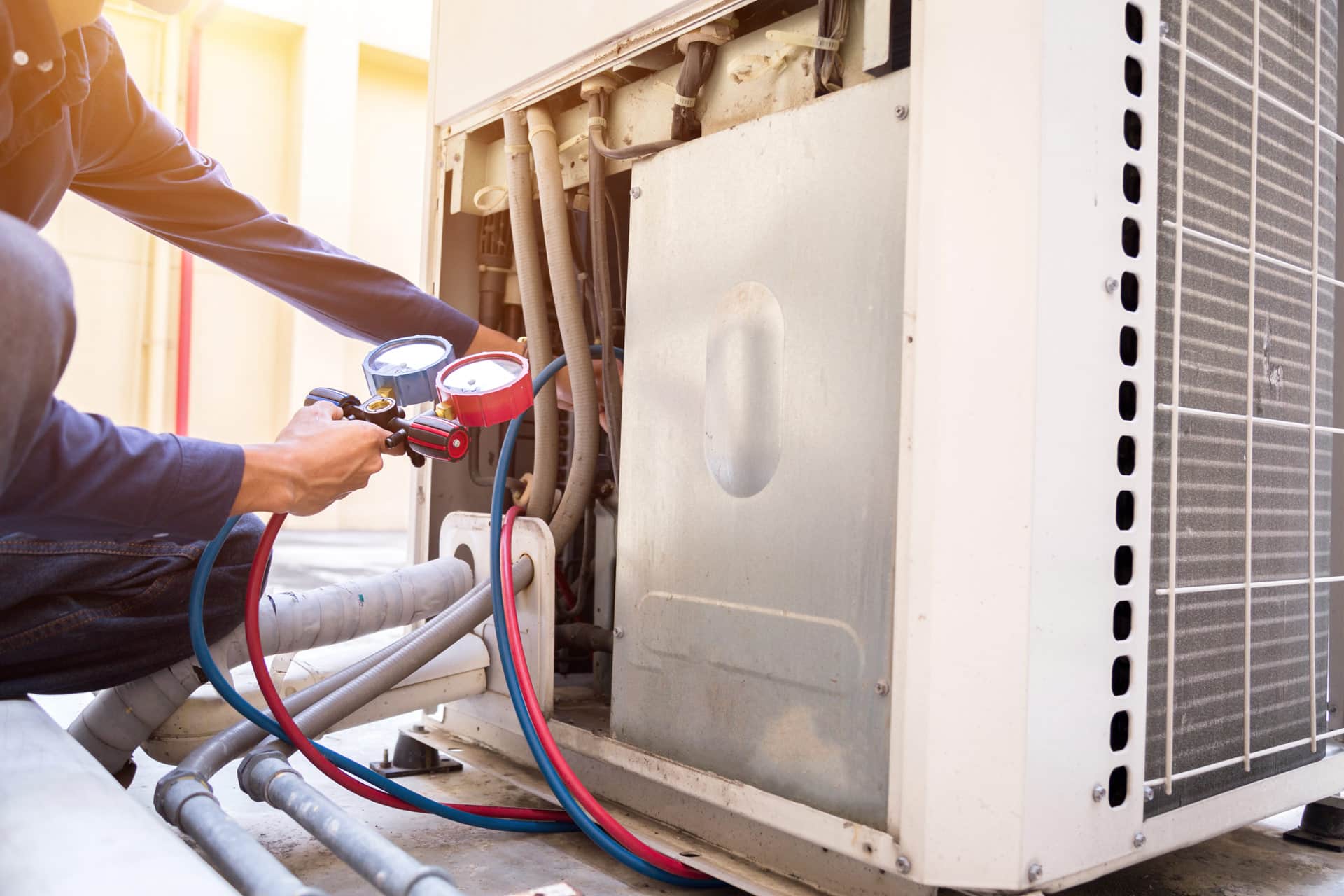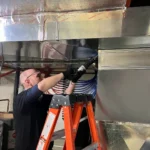Air conditioning is a modern marvel, transforming sweltering spaces into havens of cool comfort. Yet, behind the scenes of this everyday luxury lies a sophisticated system of physics, engineering, and technology. To truly appreciate the chill air wafting from your vents, it helps to understand how air conditioning works and why its maintenance matters. Here’s an in-depth look at the basics of air conditioning and everything you need to know to keep your cool.
The Science Behind Air Conditioning
At its core, air conditioning is about transferring heat from inside your home to the outside. This process relies on a fascinating principle: when a liquid turns into a gas (evaporation), it absorbs heat, and when a gas turns back into a liquid (condensation), it releases heat. Air conditioners harness this principle to cool the air.
Key Components of an Air Conditioning System
Every air conditioning system, regardless of size or type, operates using a few essential components working in harmony
- Refrigerant
- Often called the system’s lifeblood, refrigerant is a chemical compound that changes between liquid and gaseous states to absorb and release heat.
- Modern systems use eco-friendlier refrigerants like R-410A to minimize environmental impact.
- Compressor
- Located in the outdoor unit, the compressor pressurizes the refrigerant, increasing its temperature to facilitate the heat exchange process.
- Condenser Coils
- These coils, also part of the outdoor unit, release the absorbed heat into the atmosphere by condensing the refrigerant back into liquid form.
- Evaporator Coils
- Found indoors, these coils allow the refrigerant to evaporate and absorb heat from the surrounding air, cooling it in the process.
- Blower Fan
- This component pushes cooled air through ducts and vents to circulate it throughout your home.
- Thermostat
- The brain of the operation, the thermostat controls the system, ensuring your desired temperature is maintained.
How Air Conditioning Works: Step-by-Step
- Thermostat Signals Cooling Need
- When the indoor temperature exceeds the thermostat setting, the system kicks into action.
- Refrigerant Absorbs Heat Indoors
- Warm air from your home is drawn into the system and passes over the evaporator coils. Here, the refrigerant absorbs the heat, cooling the air.
- Heat is Released Outdoors
- The refrigerant, now carrying the heat, flows to the compressor and then the condenser coils, where the heat is expelled into the outside air.
- Cool Air is Circulated Indoors
- The blower fan pushes the now-cooled air through ducts and into your living spaces.
- Cycle Repeats
- This process continues until the thermostat detects that the desired indoor temperature has been reached.
Different Types of Air Conditioning Systems
Not all air conditioners are created equal. Choosing the right system depends on your home’s layout, budget, and cooling needs.
- Central Air Conditioning
- Ideal for cooling an entire home.
- Uses ductwork to distribute air evenly across rooms.
- Ductless Mini-Split Systems
- Perfect for homes without ductwork.
- Allows for individual temperature control in different zones.
- Window Units
- Cost-effective for cooling single rooms.
- Compact and easy to install.
- Portable Air Conditioners
- Convenient and mobile.
- Suitable for temporary cooling solutions.
- Heat Pumps
- Dual-purpose systems for heating and cooling.
- Highly energy-efficient in moderate climates.
Benefits of Air Conditioning Beyond Comfort
While keeping your home cool is the primary goal, air conditioning offers several other advantages
- Improved Air Quality
- Filters in air conditioners trap allergens, dust, and pollutants, creating a healthier indoor environment.
- Enhanced Productivity
- Cooler temperatures improve focus and performance, whether at work or home.
- Protection for Electronics
- Prevents overheating of devices like computers and TVs, extending their lifespan.
- Preservation of Furniture
- Reduces humidity levels, protecting wood and fabric from warping and mold growth.
Common Air Conditioning Problems and Solutions
Like any mechanical system, air conditioners can encounter issues. Knowing the basics can help you troubleshoot minor problems or decide when to call a professional.
- Poor Cooling Performance
- Possible Causes: Dirty air filters, low refrigerant levels, or blocked vents.
- Solution: Replace filters, clear obstructions, and schedule a refrigerant recharge if necessary.
- Strange Noises
- Possible Causes: Loose components, failing motors, or debris in the unit.
- Solution: Turn off the system and inspect for loose parts. Call a technician for motor repairs.
- Water Leaks
- Possible Causes: Clogged drain lines or frozen evaporator coils.
- Solution: Clear the drain line and ensure proper airflow to prevent freezing.
- High Energy Bills
- Possible Causes: Inefficient operation due to poor maintenance.
- Solution: Schedule regular tune-ups and seal any leaks in ductwork.
Tips for Maintaining Your Air Conditioning System
A well-maintained AC system runs more efficiently, lasts longer, and saves you money. Follow these maintenance tips to keep your system in top shape
- Change Filters Regularly
- Replace air filters every 1–3 months to ensure proper airflow and efficiency.
- Clean the Coils
- Dust and debris on condenser and evaporator coils reduce efficiency. Clean them annually or as needed.
- Inspect Ductwork
- Check for and seal any leaks to prevent energy loss.
- Keep Outdoor Units Clear
- Remove leaves, dirt, and debris from the area around your outdoor unit to maintain proper airflow.
- Schedule Professional Inspections
- A yearly tune-up by an HVAC technician can identify potential issues before they escalate.
When to Call a Professional
While many maintenance tasks can be handled by homeowners, certain issues require the expertise of a licensed HVAC technician.
- Refrigerant Leaks: Handling refrigerants without certification is illegal and hazardous.
- Electrical Problems: Tripped breakers, faulty wiring, or system shutdowns demand professional attention.
- Compressor Issues: A failing compressor is a complex and expensive repair that should not be attempted DIY.
- Persistent Problems: If your AC system continues to malfunction despite your efforts, it’s time to call in the pros.
Air conditioning systems are marvels of modern engineering, offering comfort, improved air quality, and protection for your home’s assets. By understanding how air conditioning works and staying on top of maintenance, you can ensure your system operates efficiently and lasts for years to come. Whether you’re tackling minor issues or calling a professional for more complex problems, a well-functioning AC system is key to beating the heat and keeping your home comfortable year-round.







